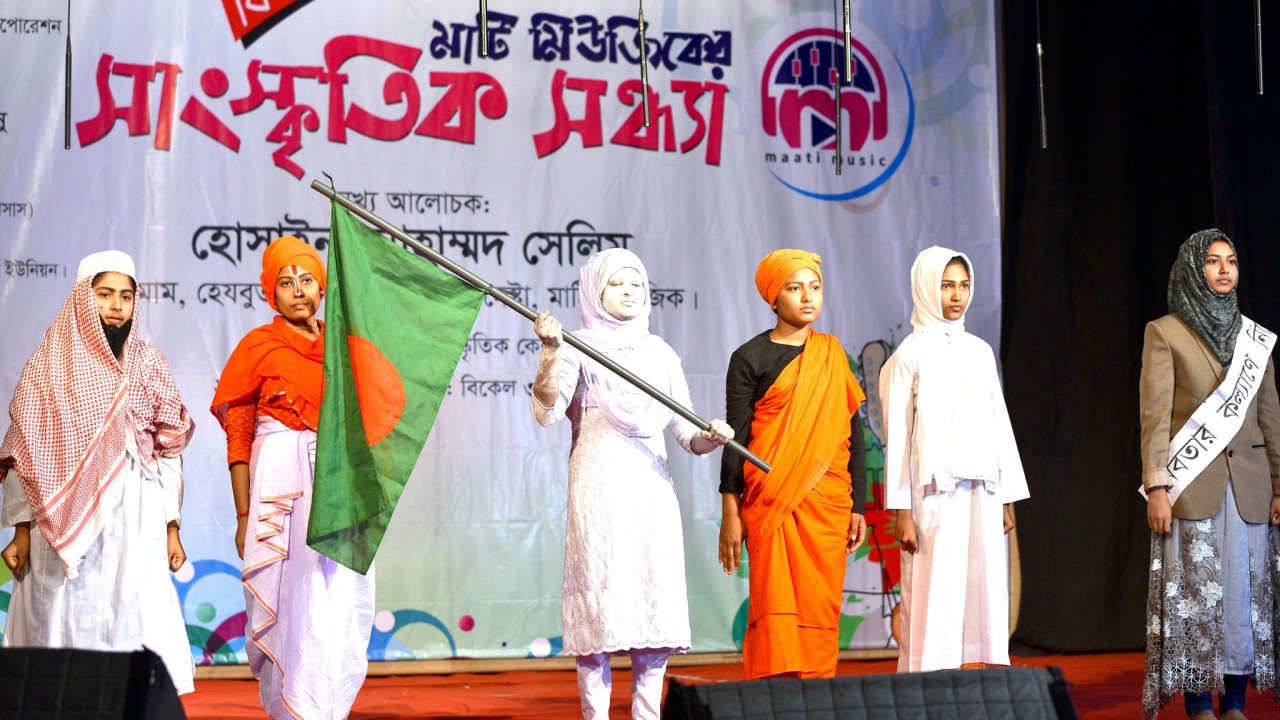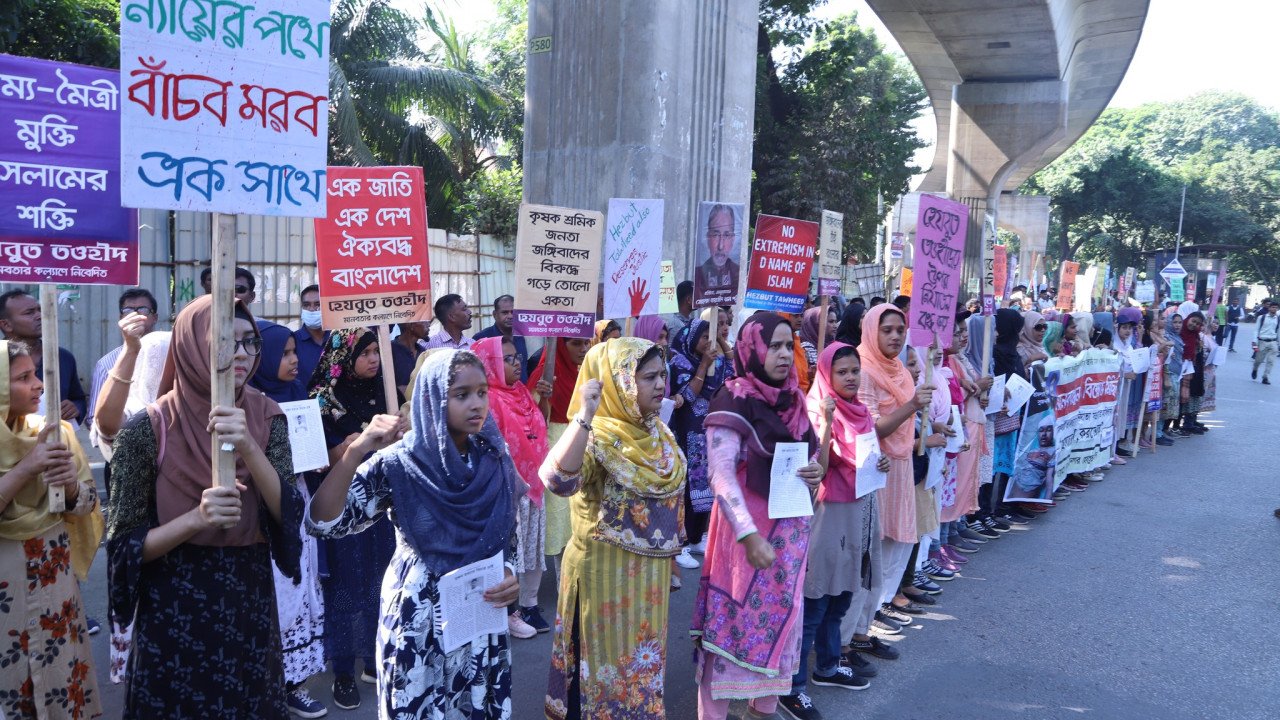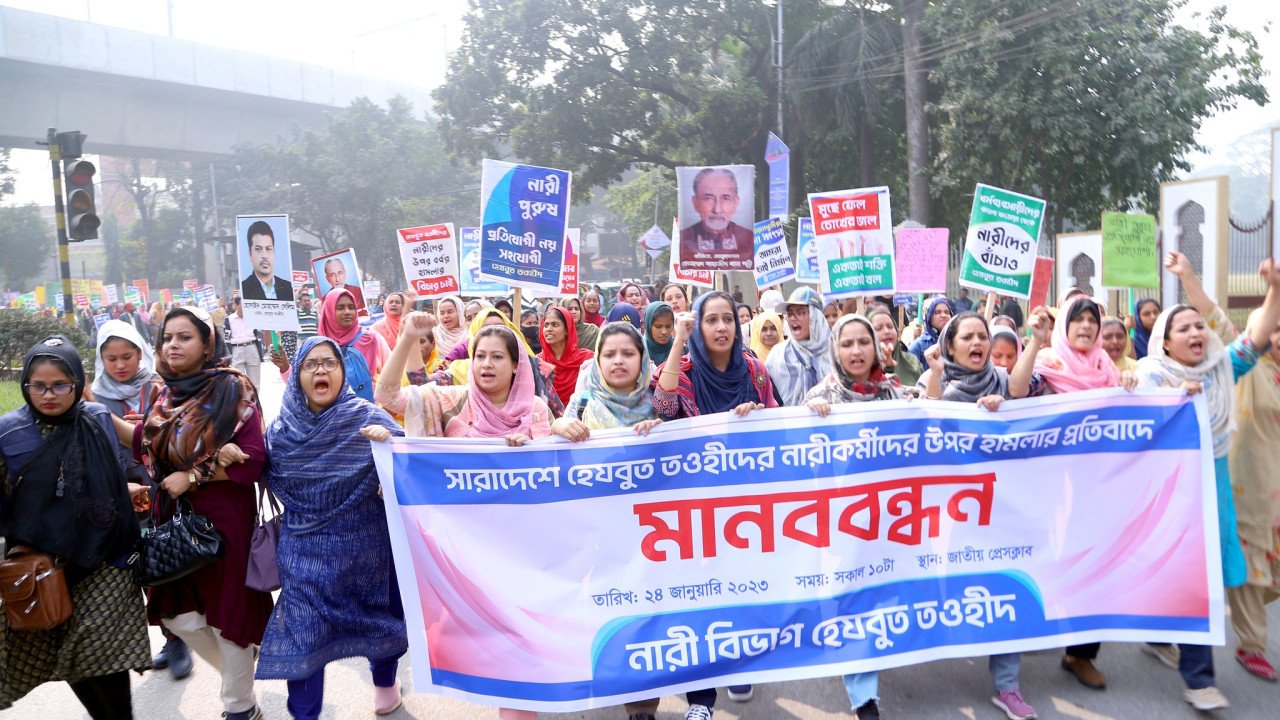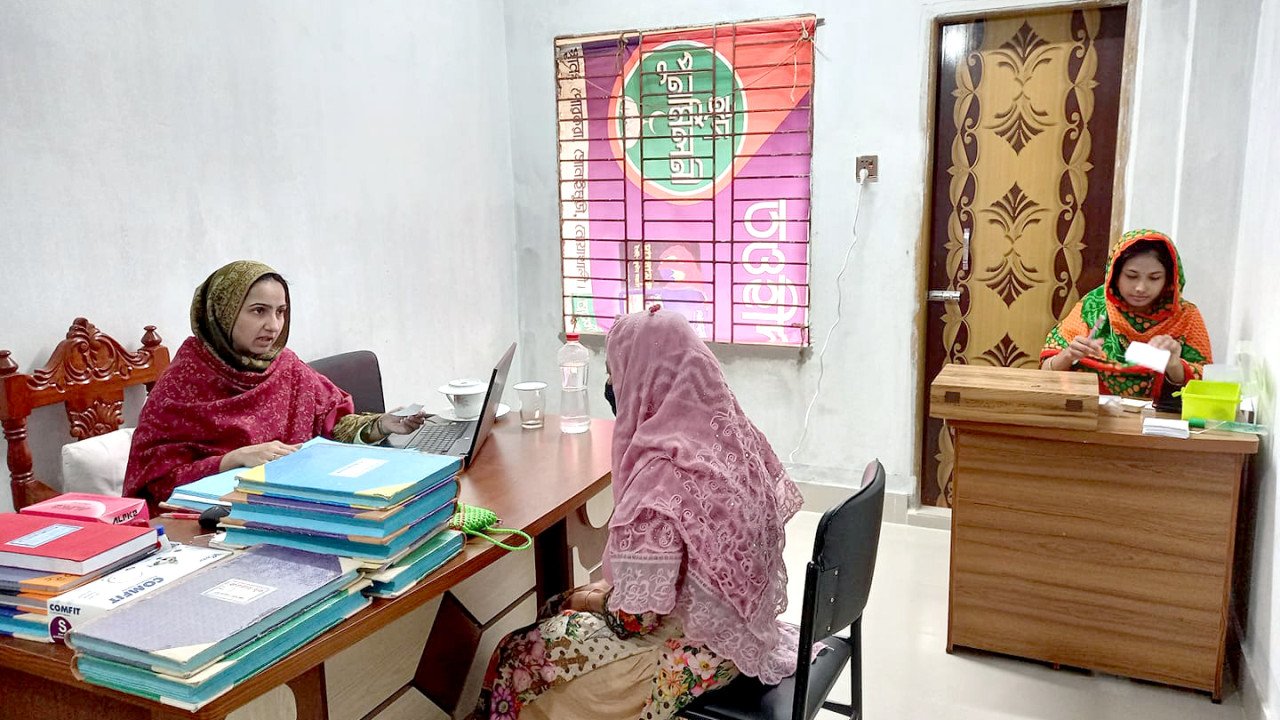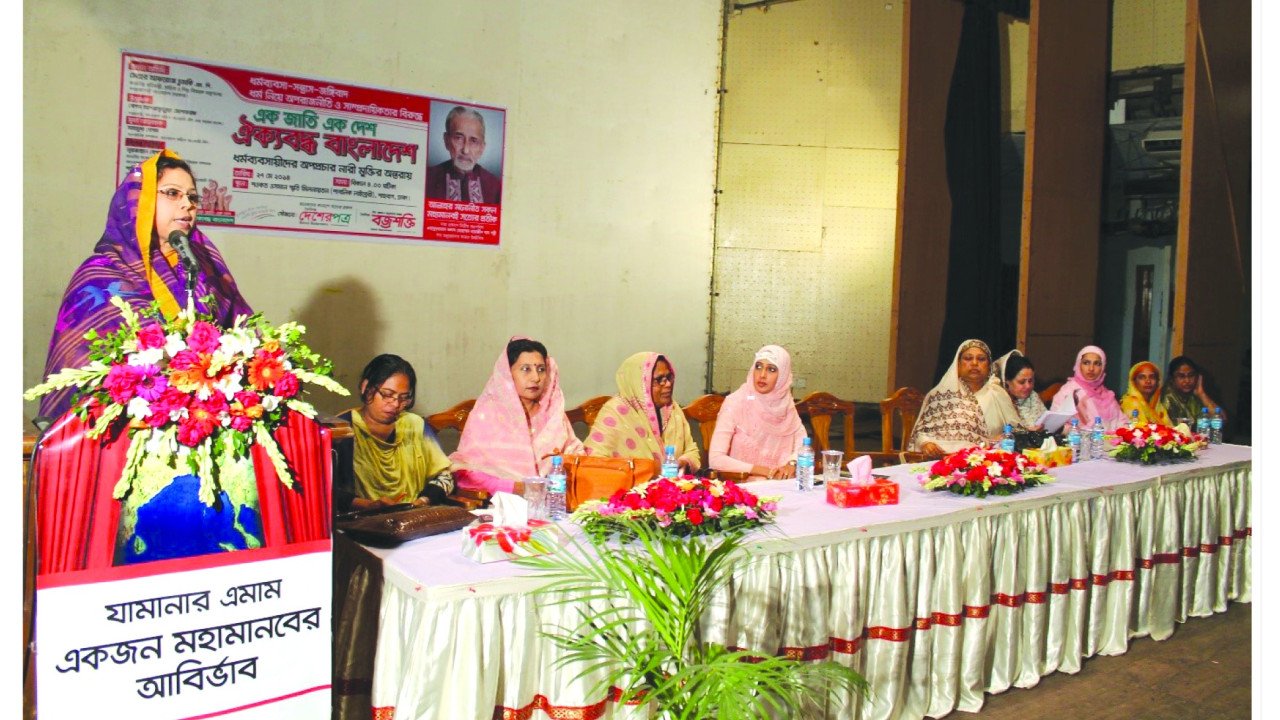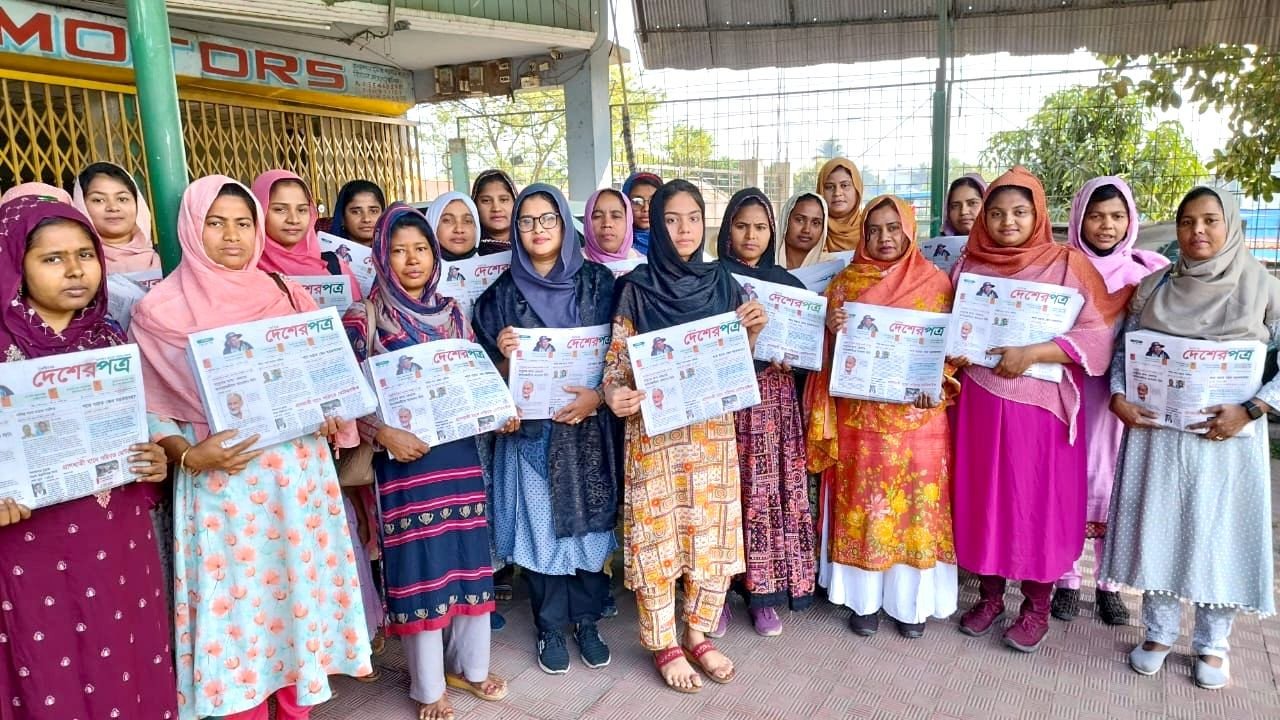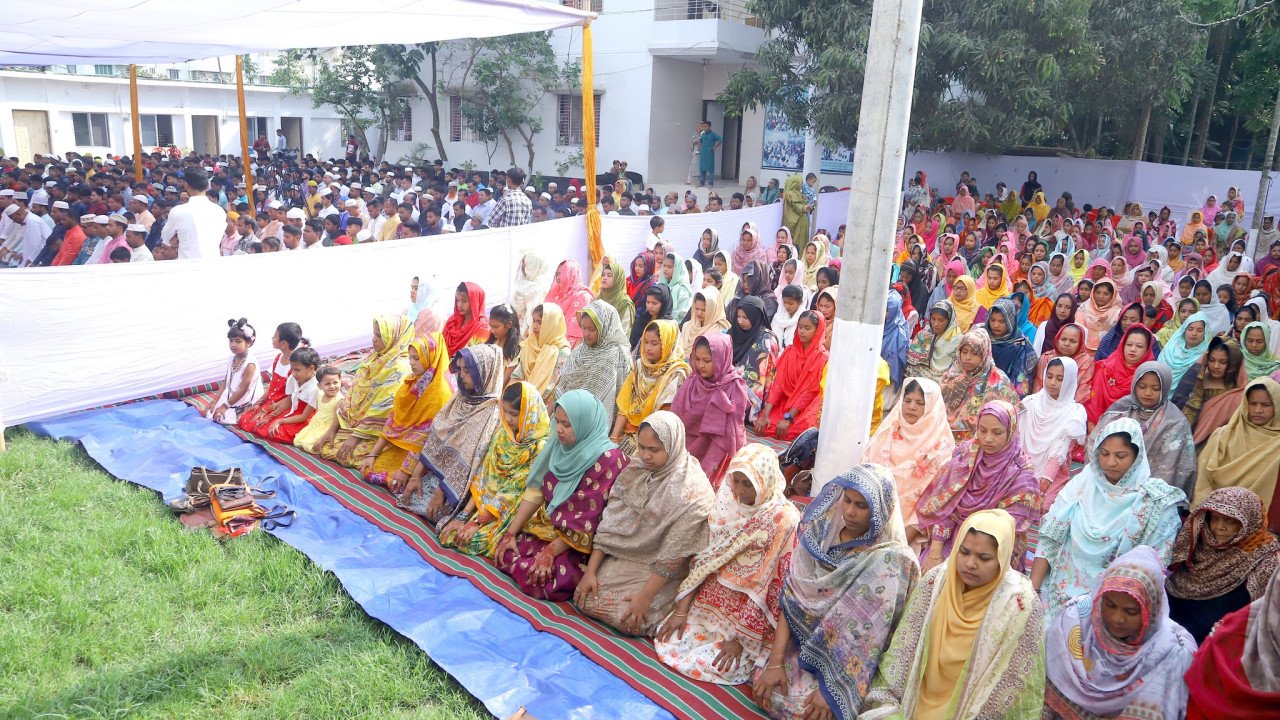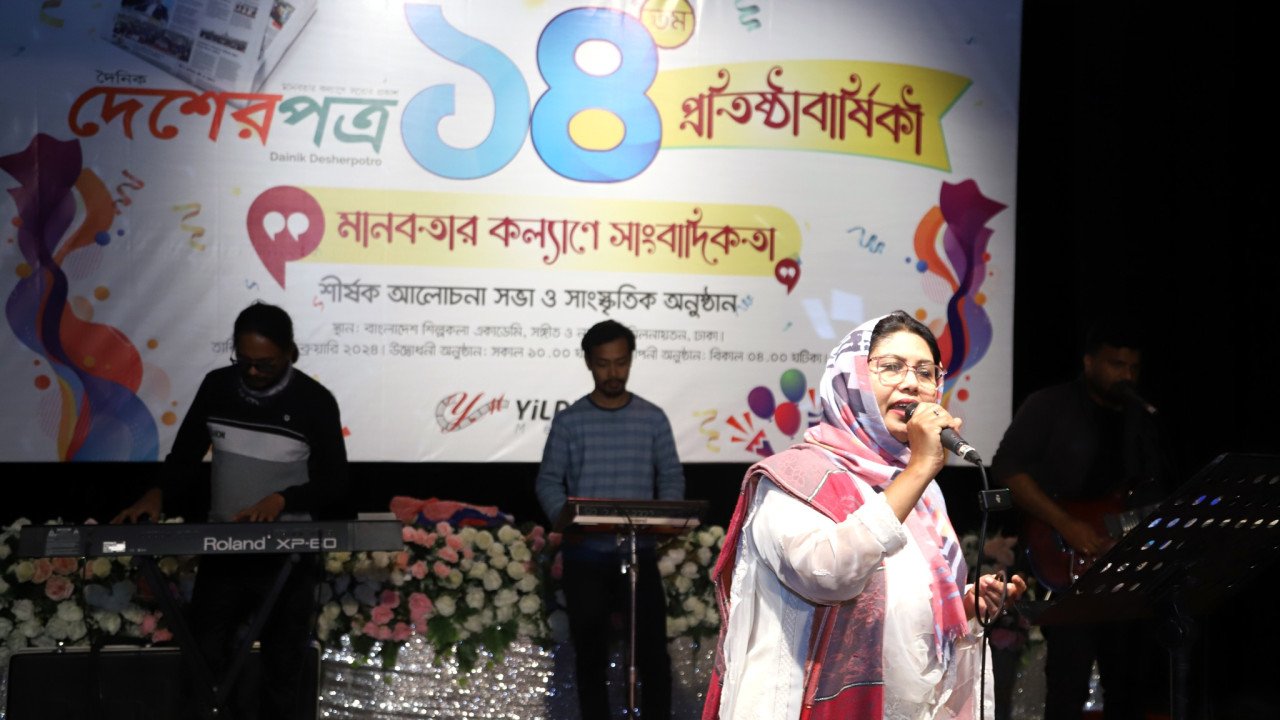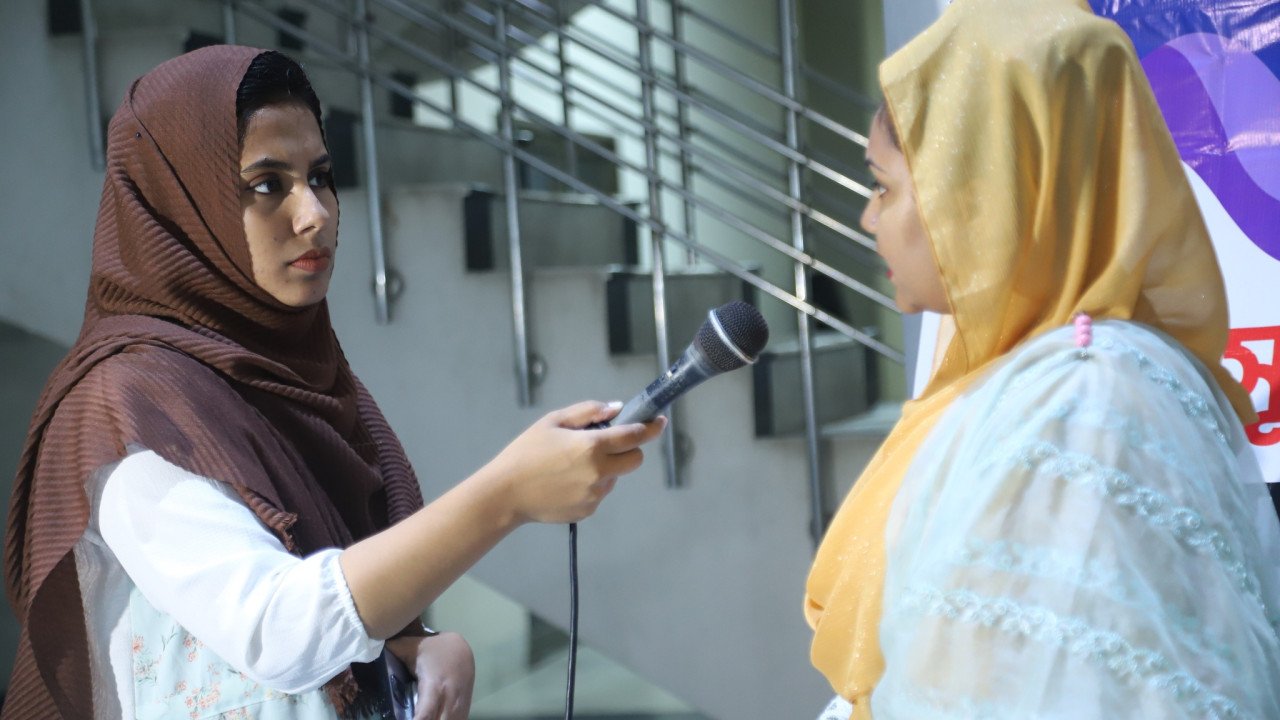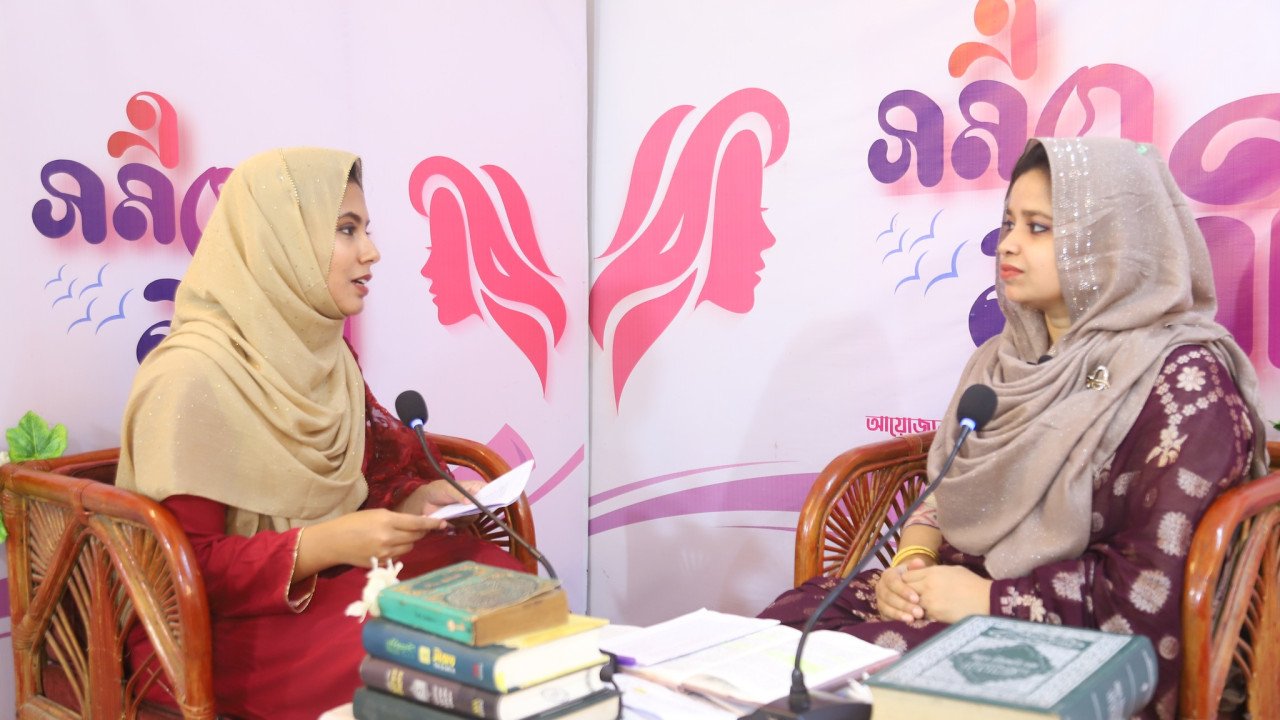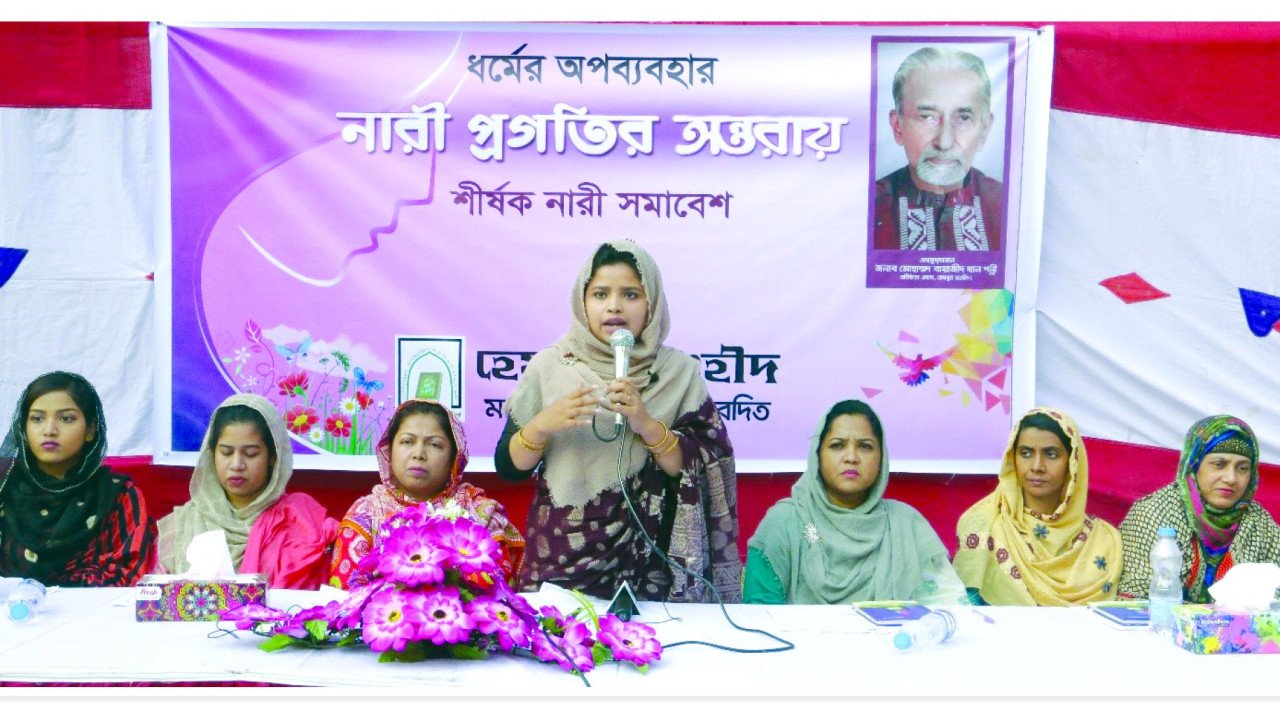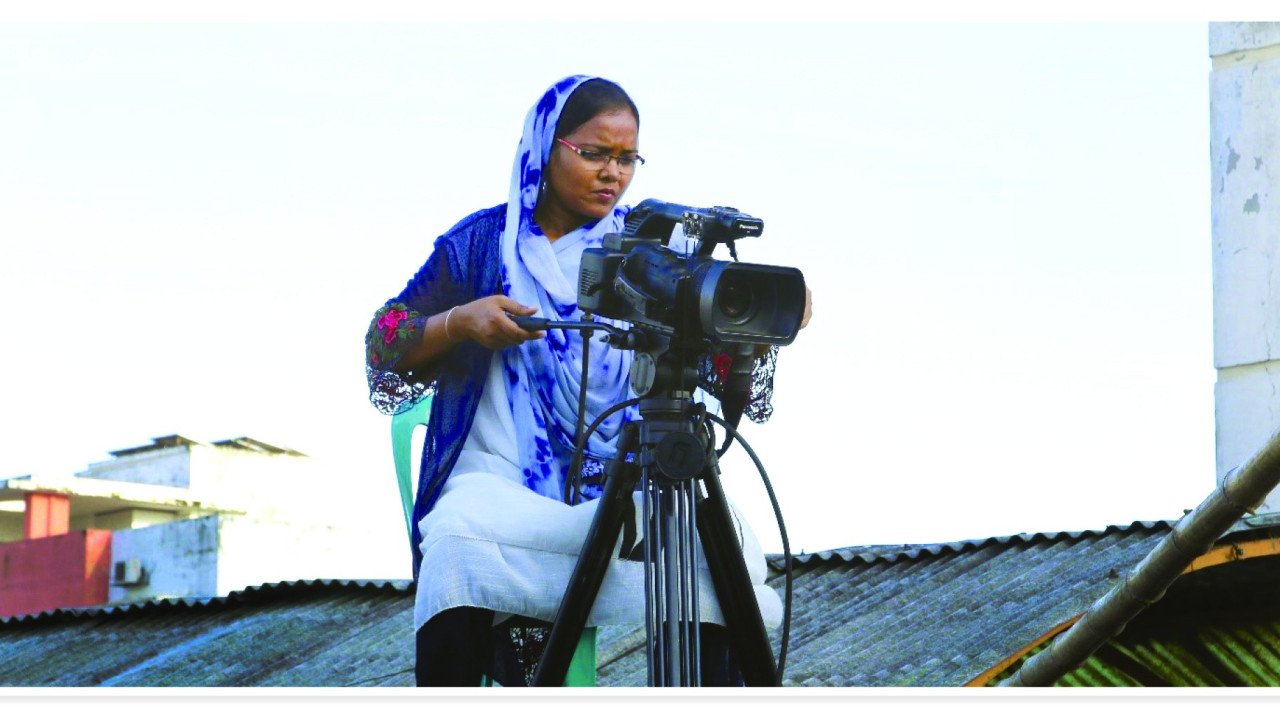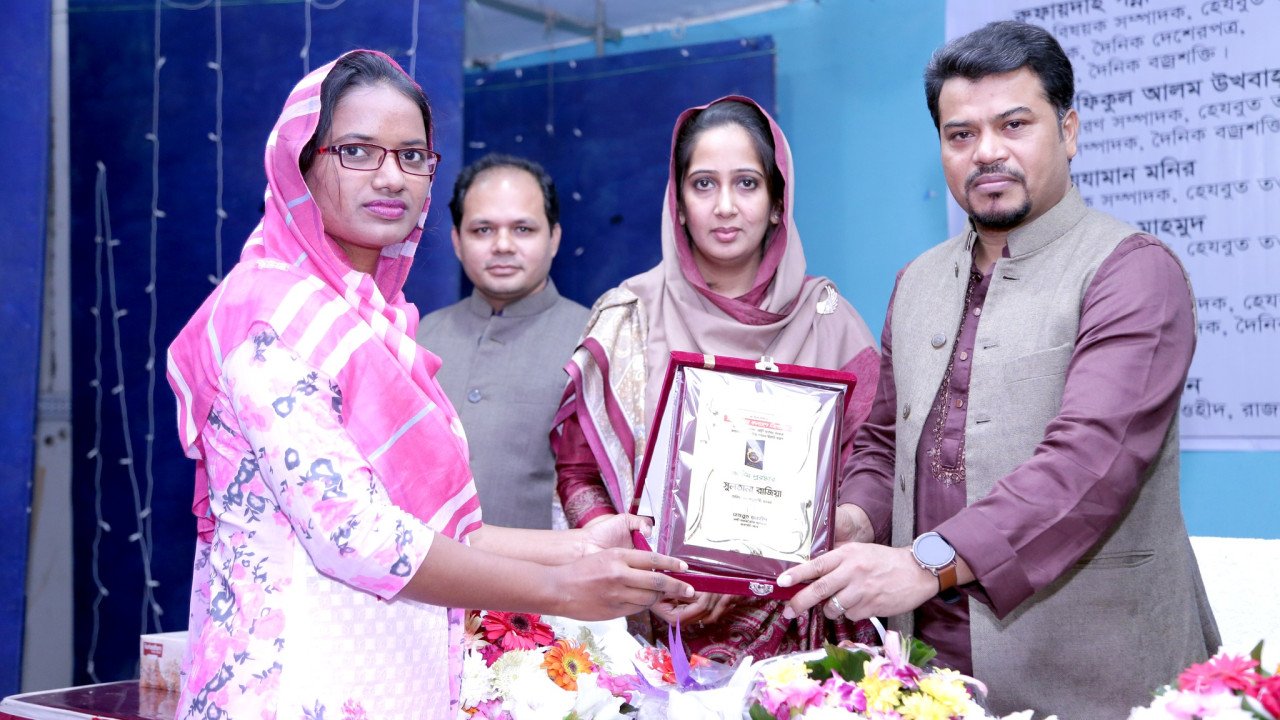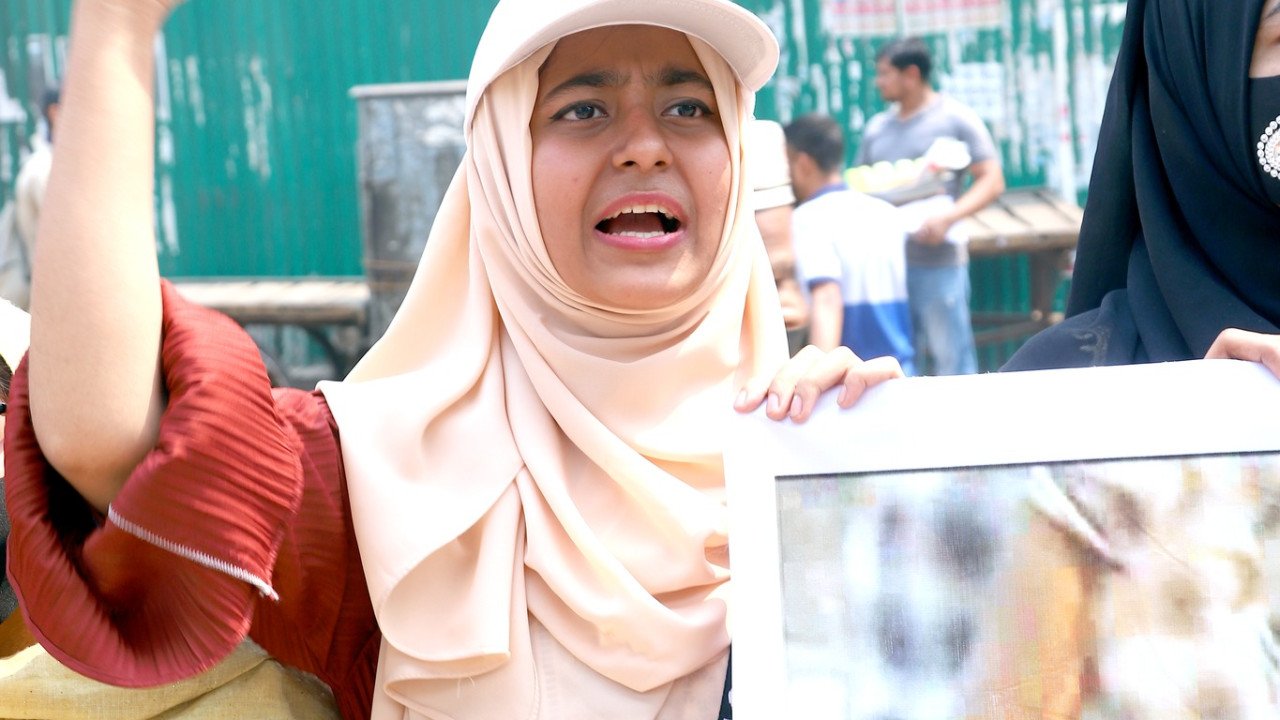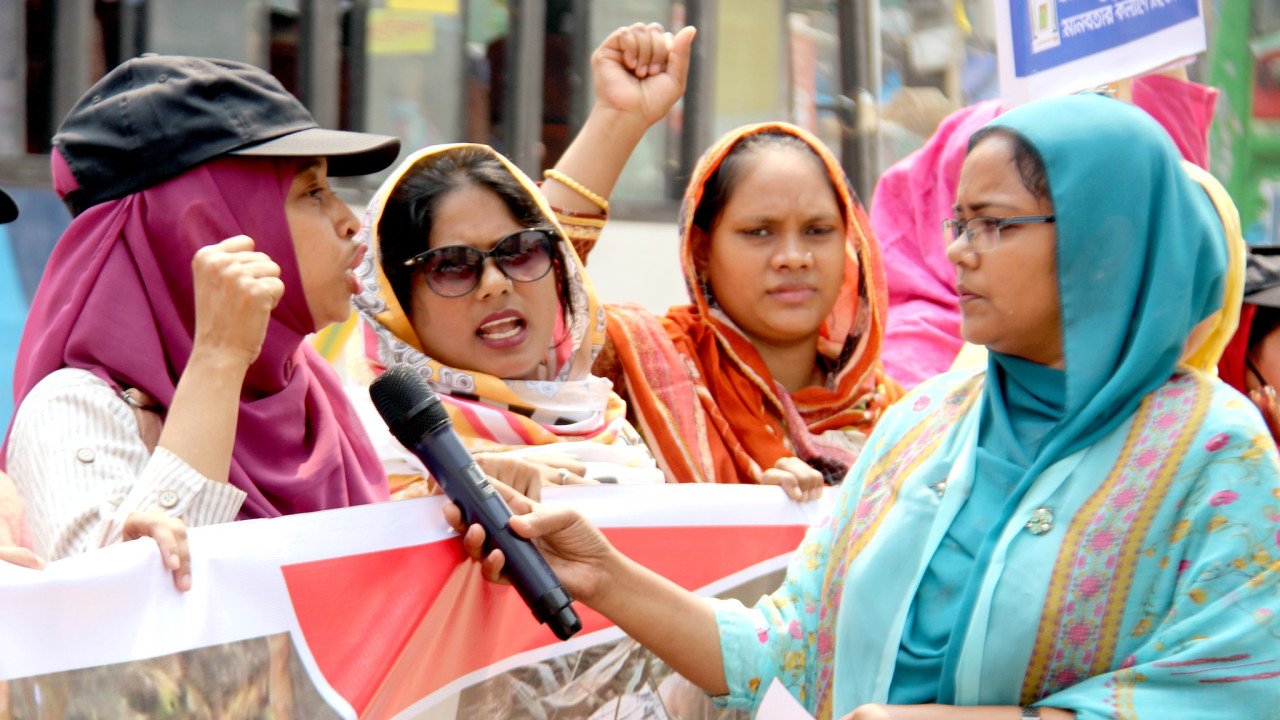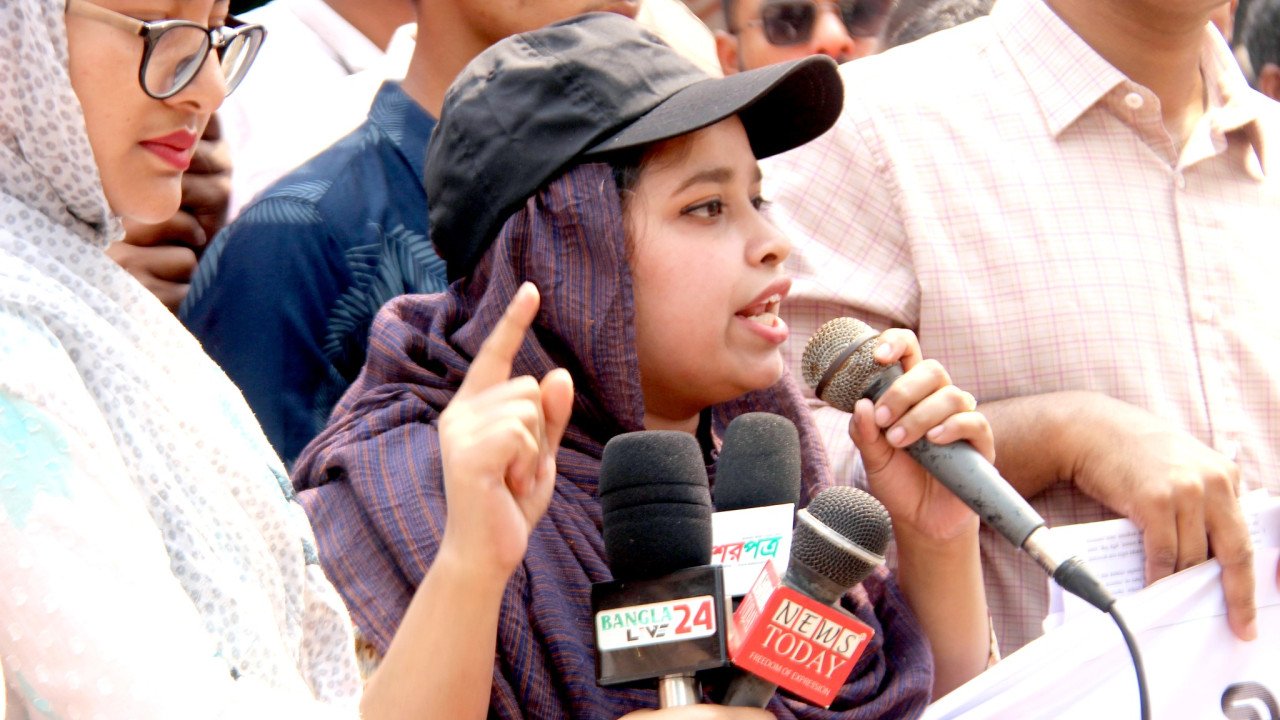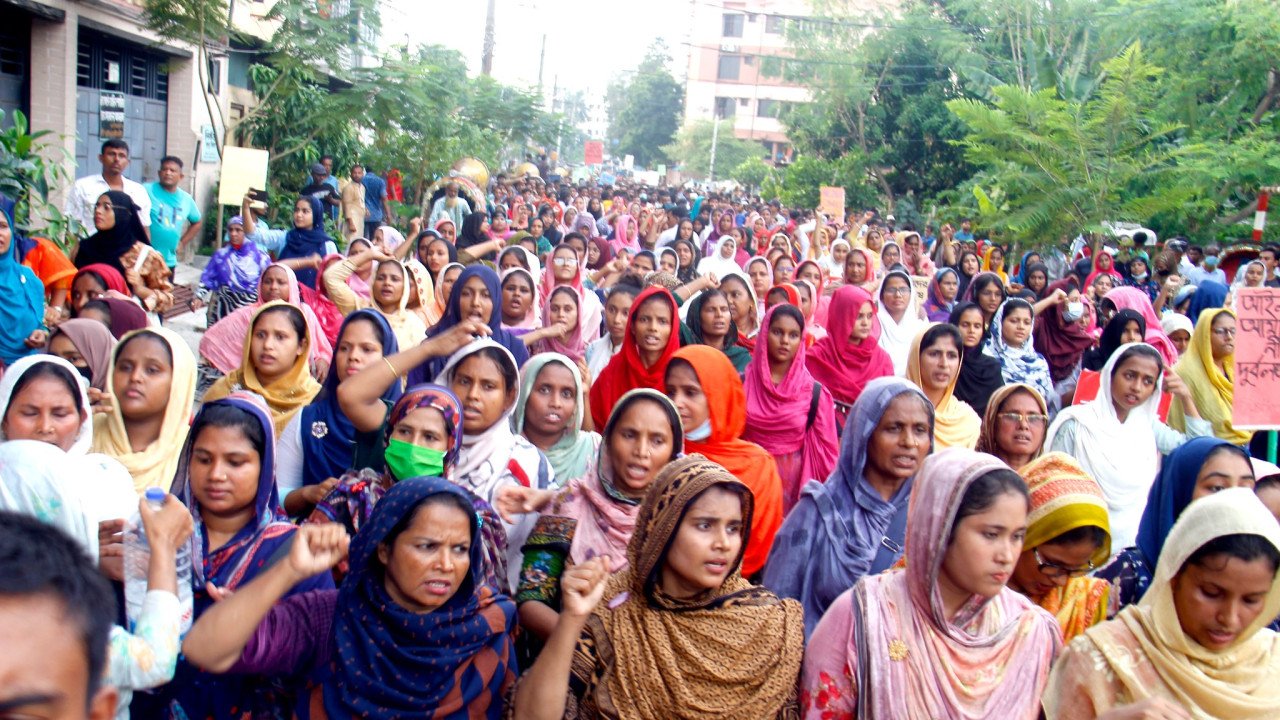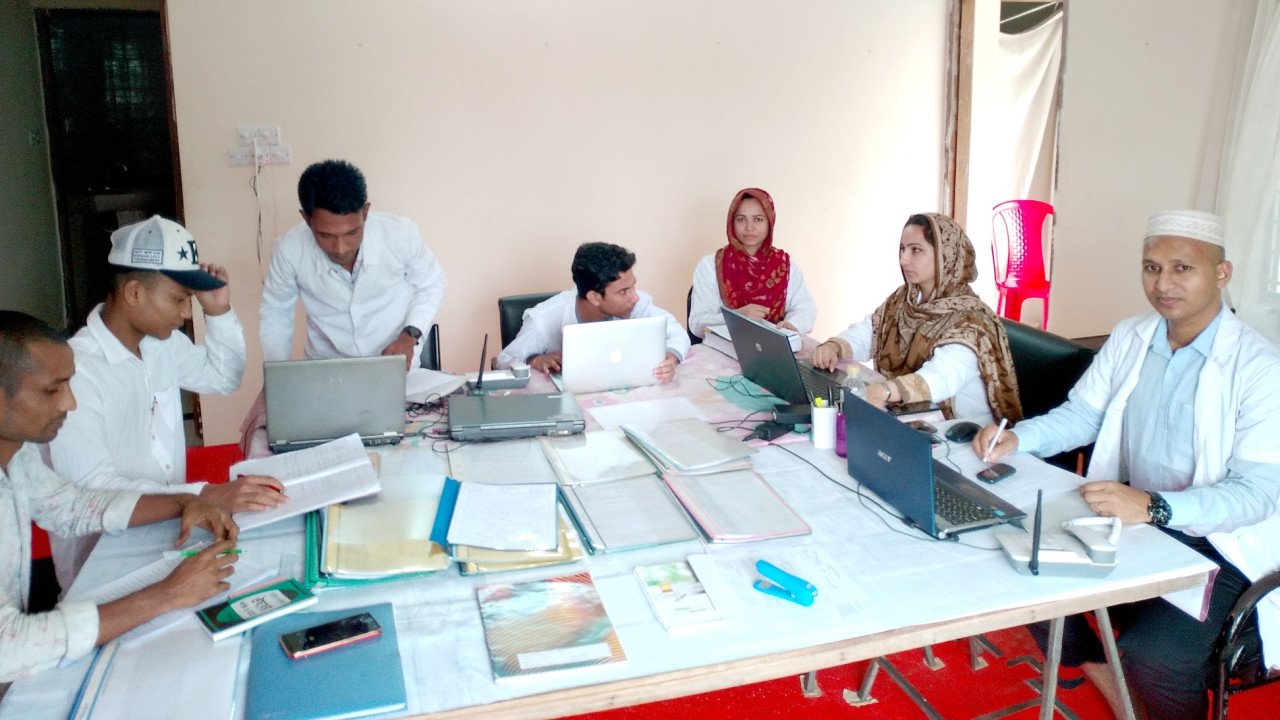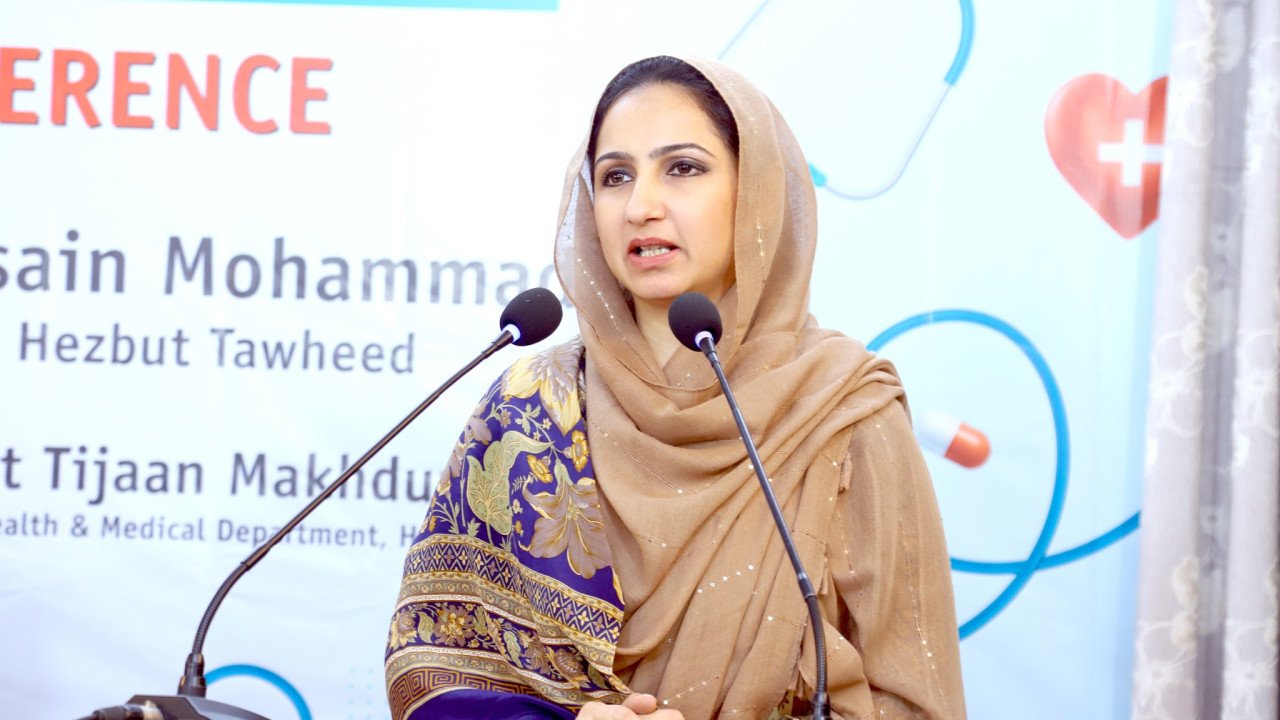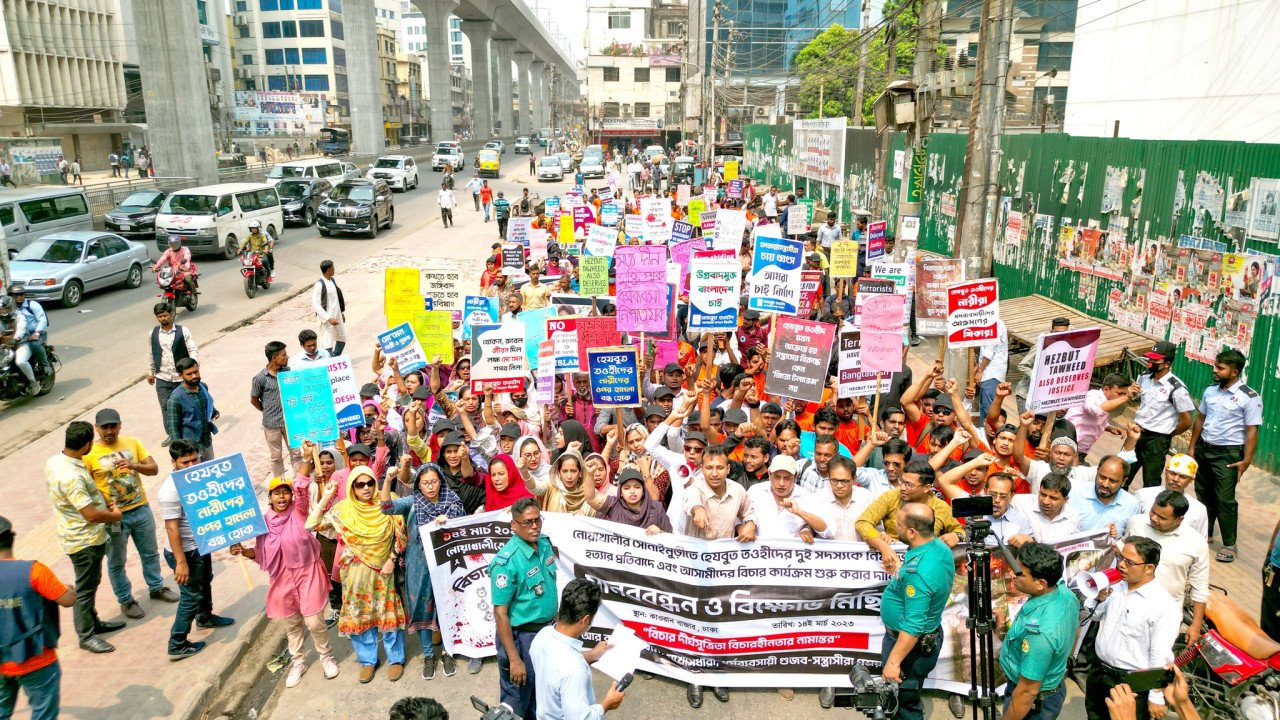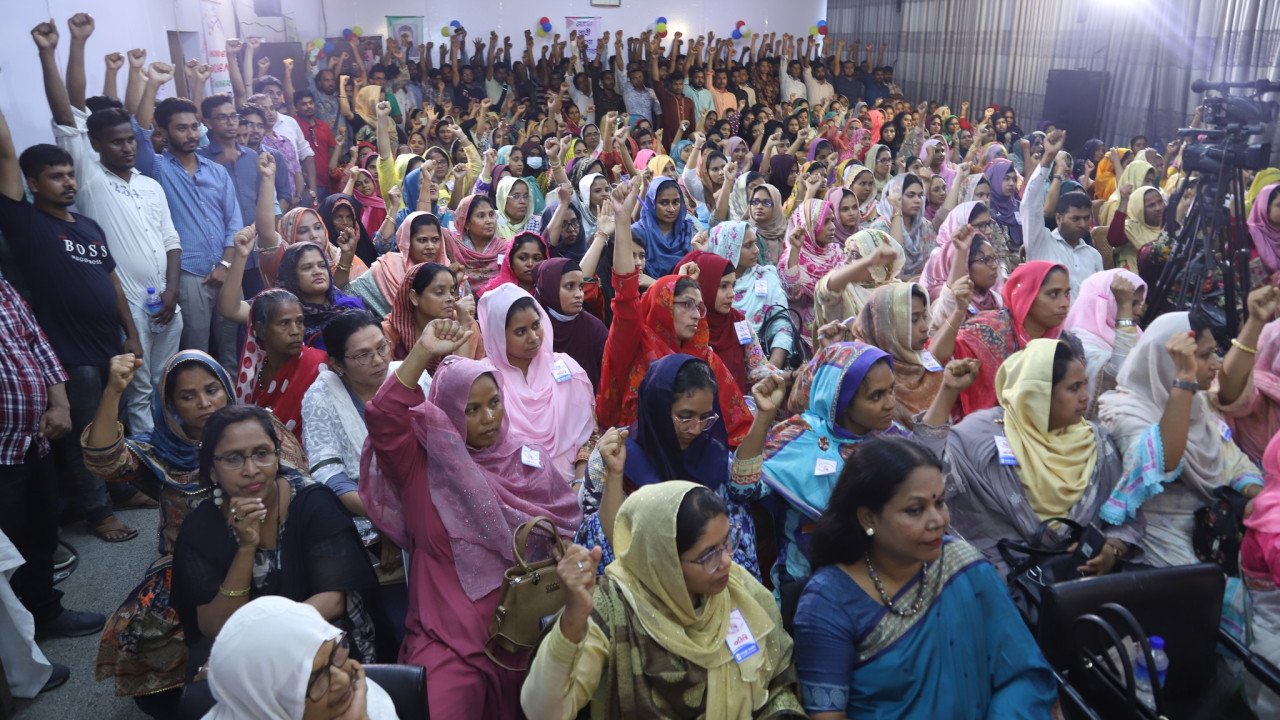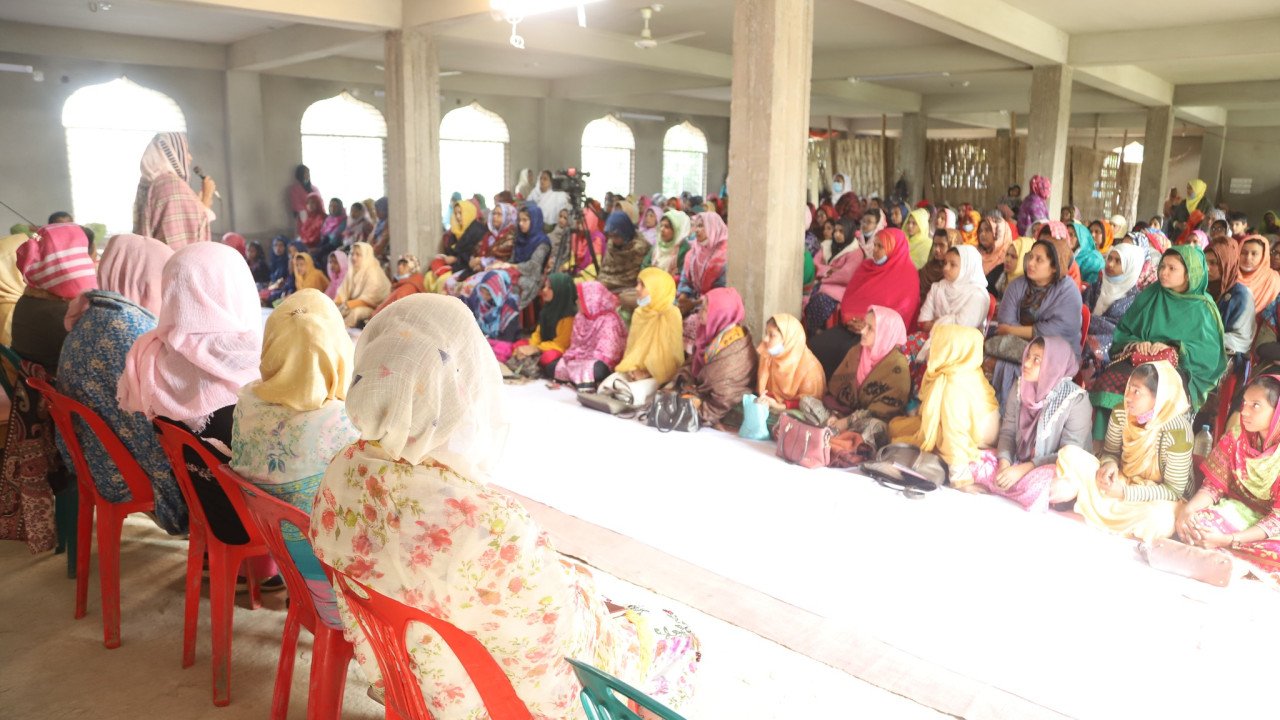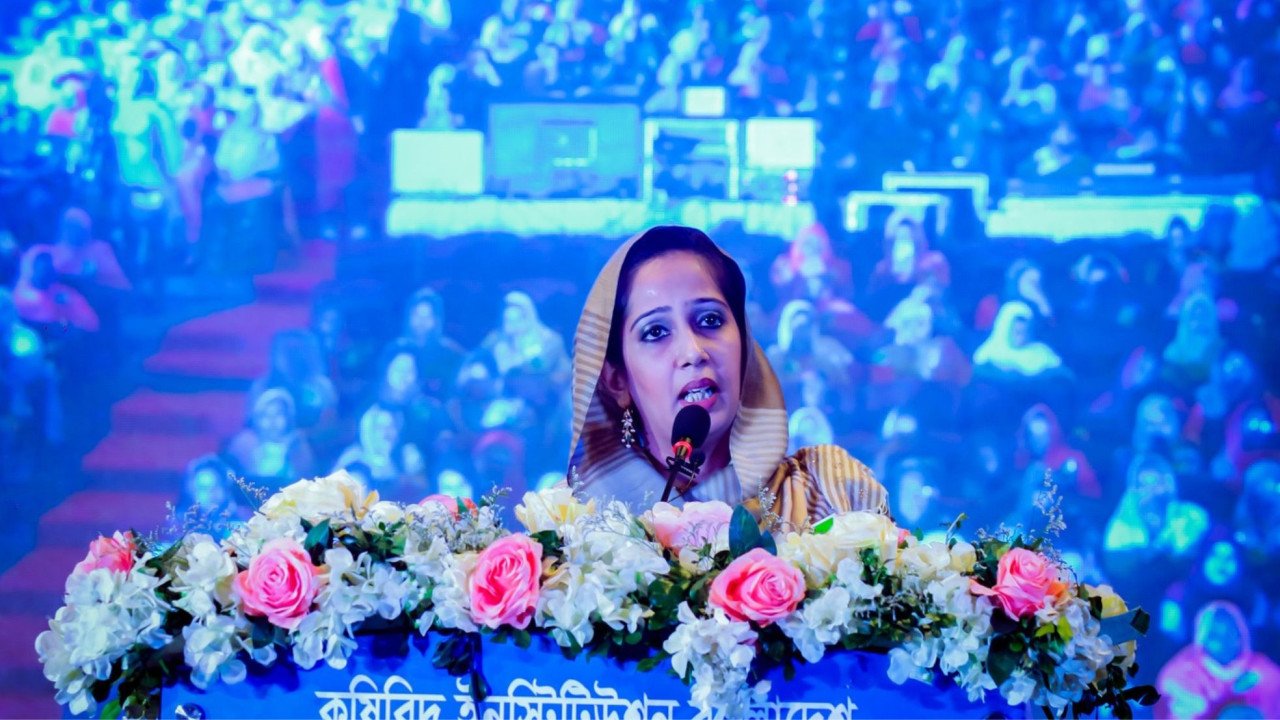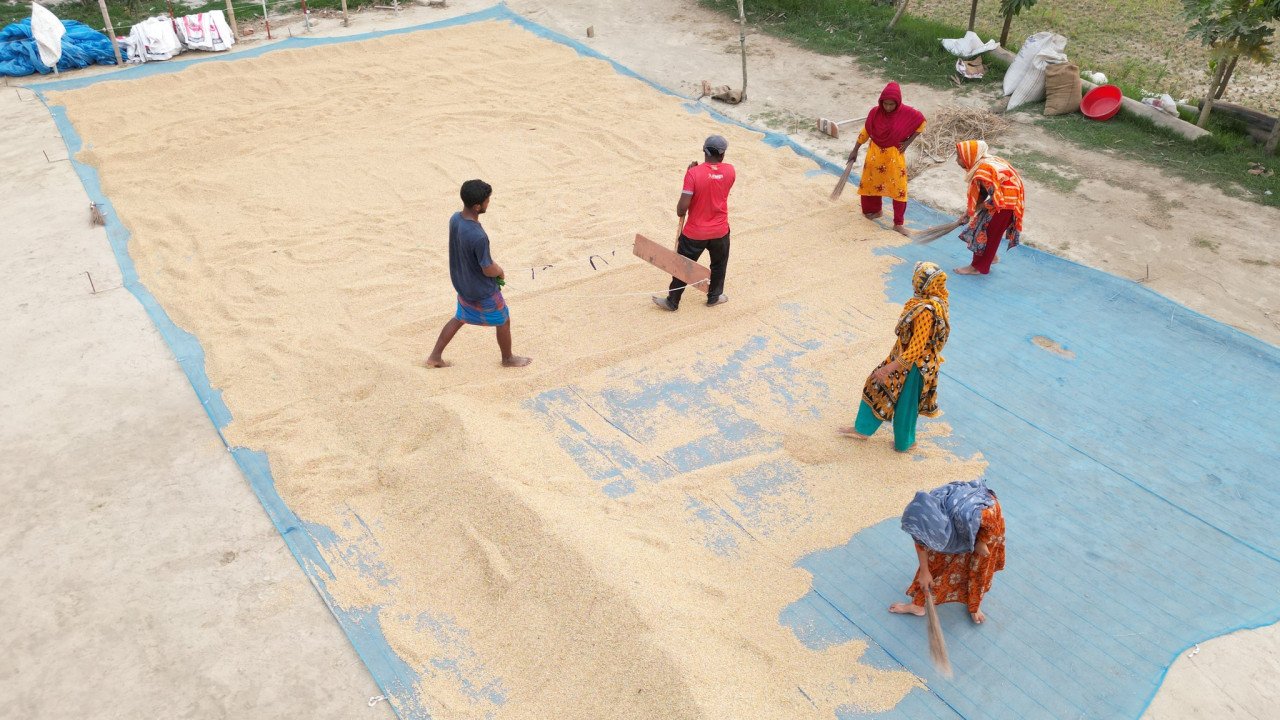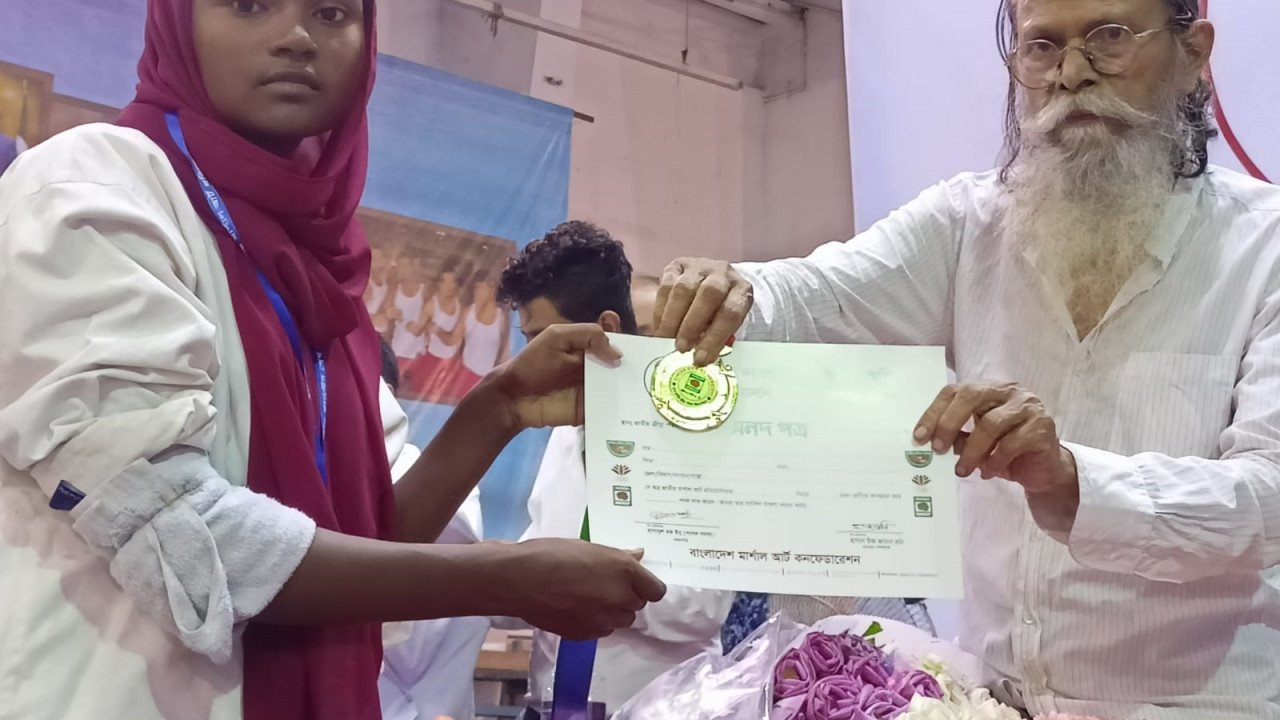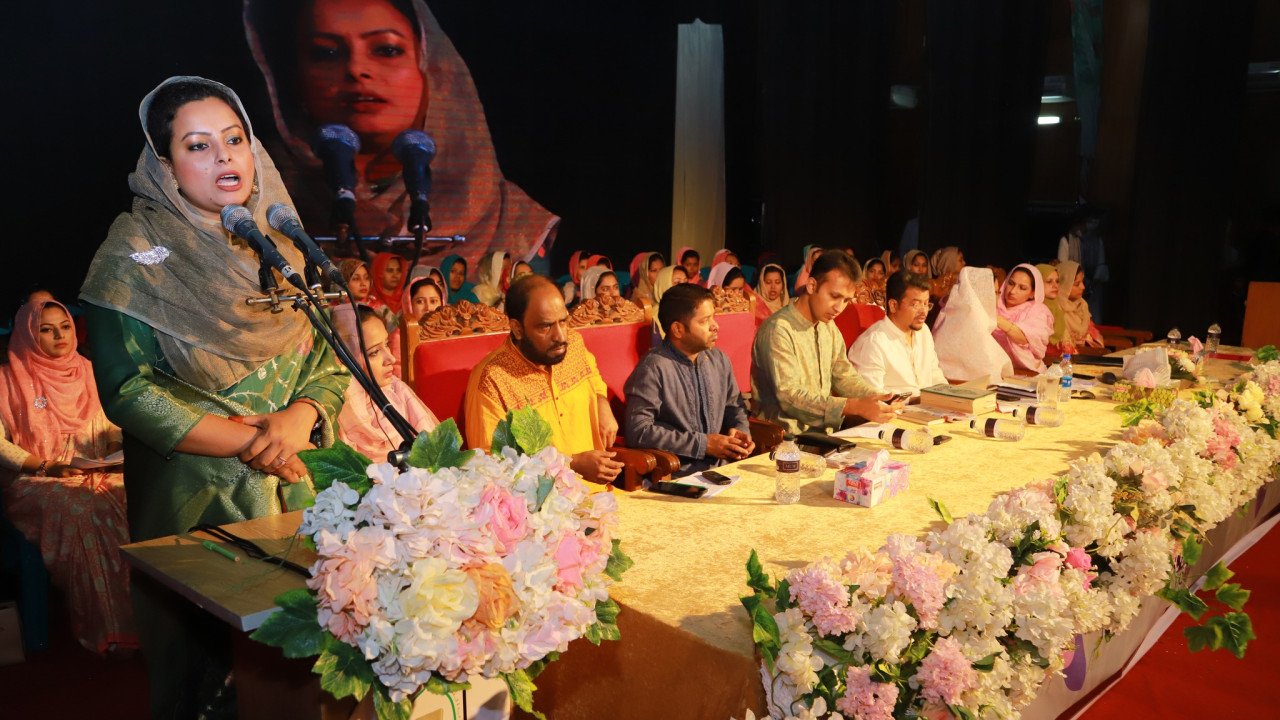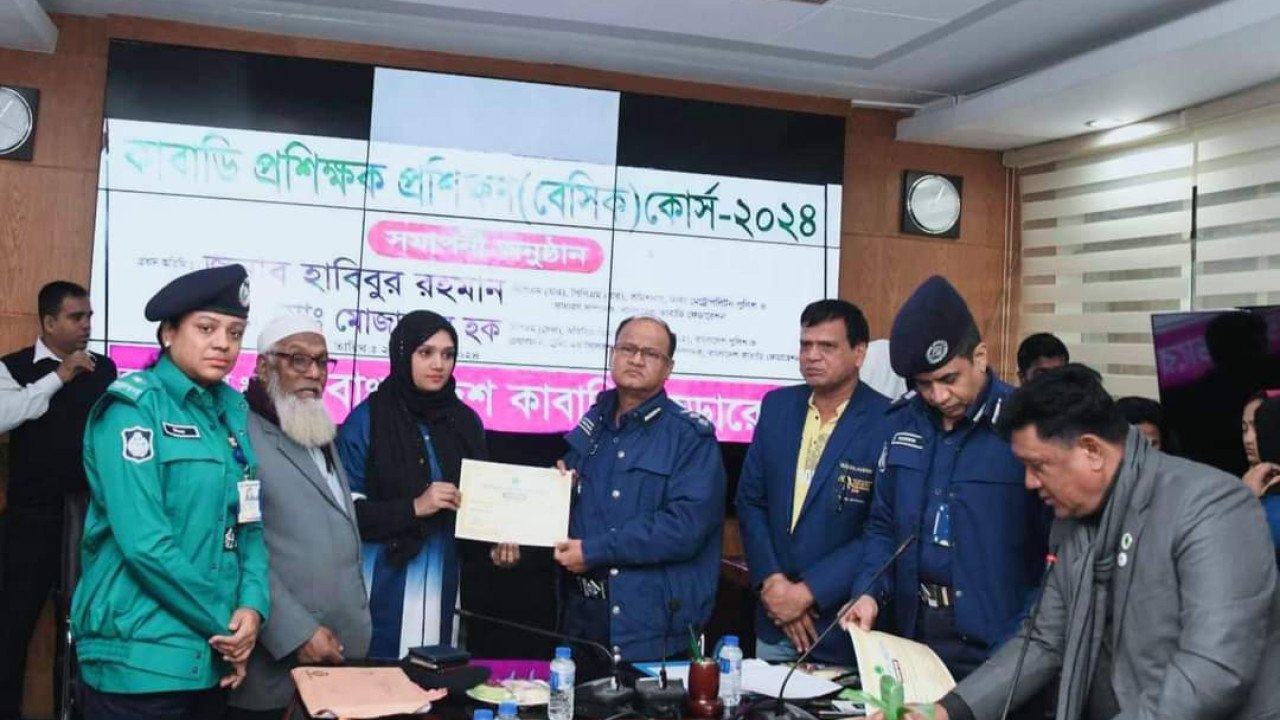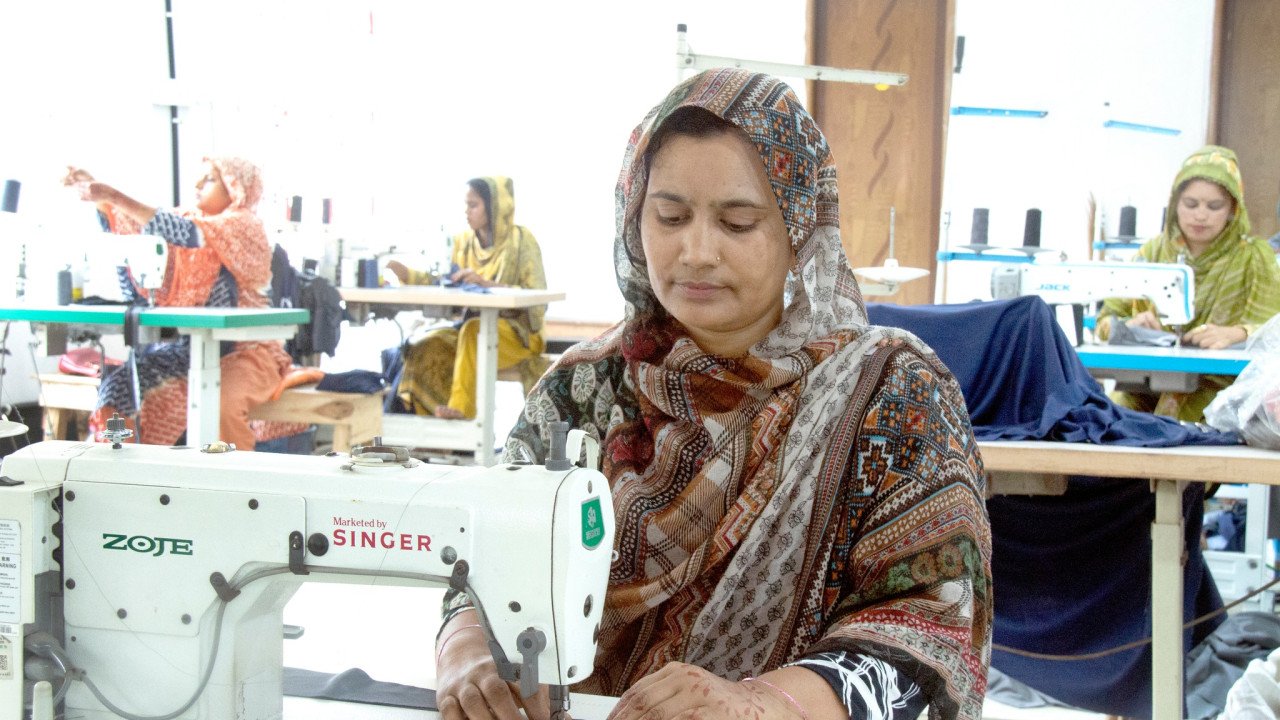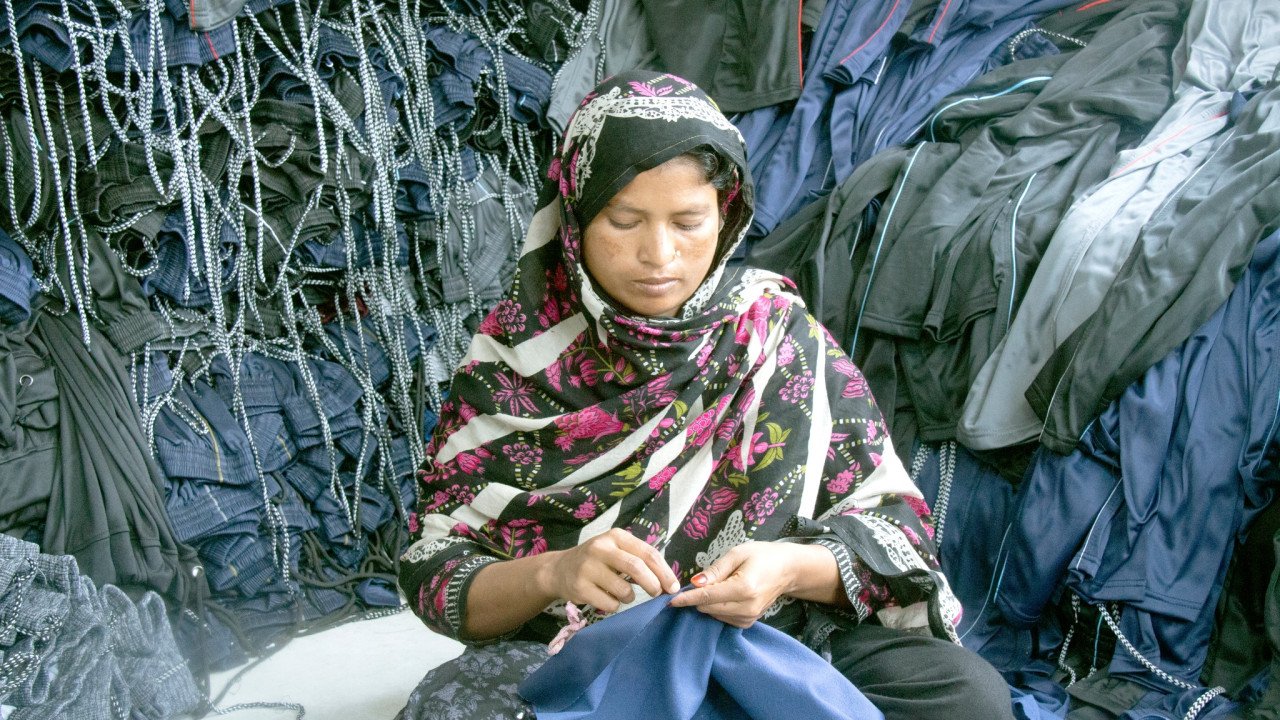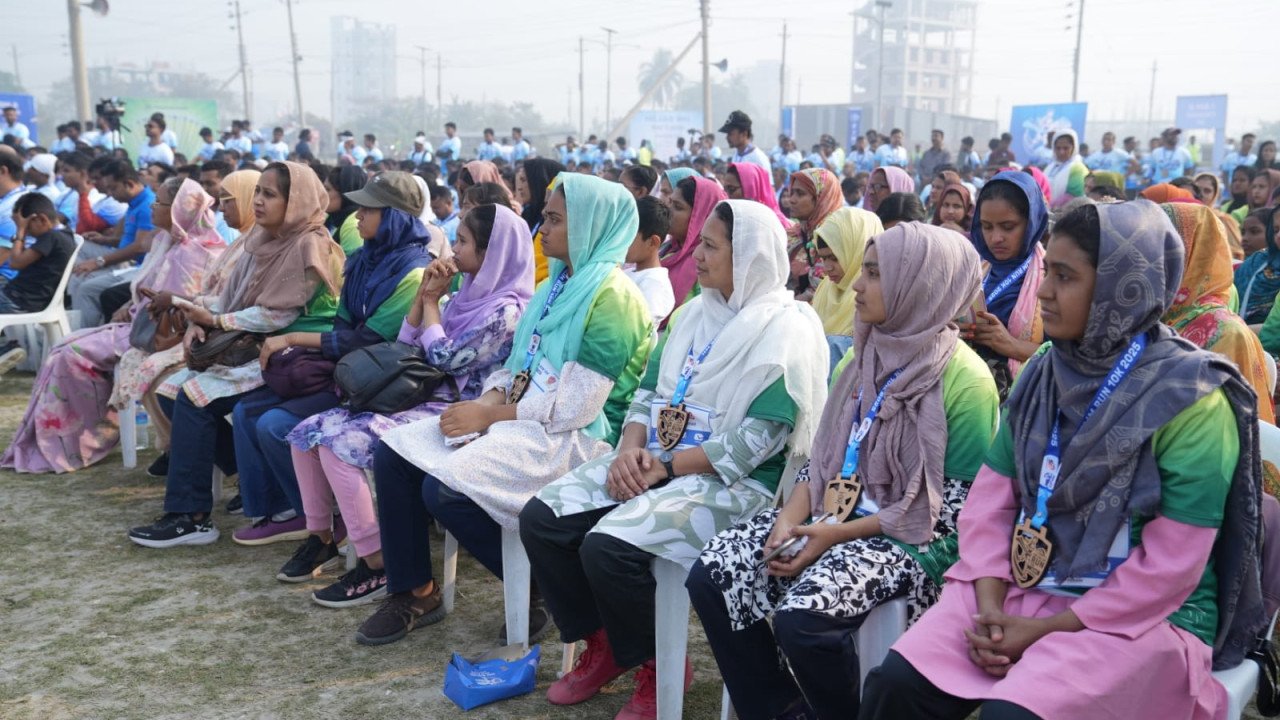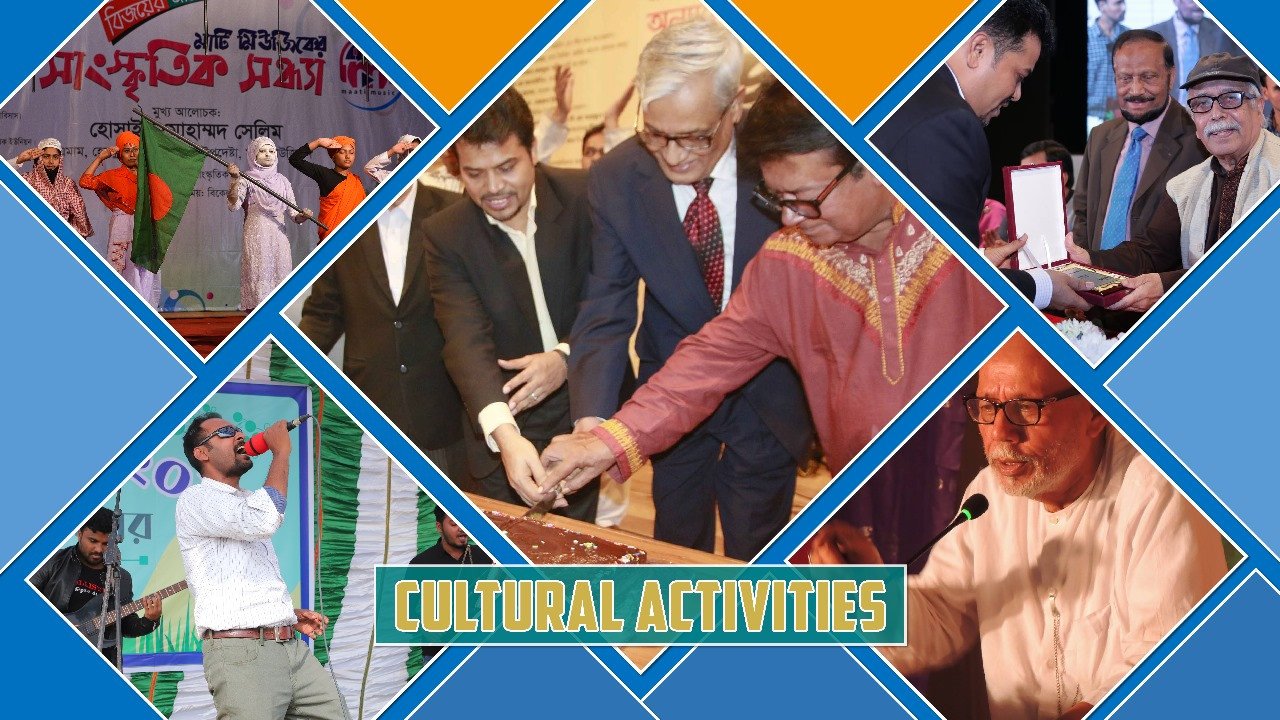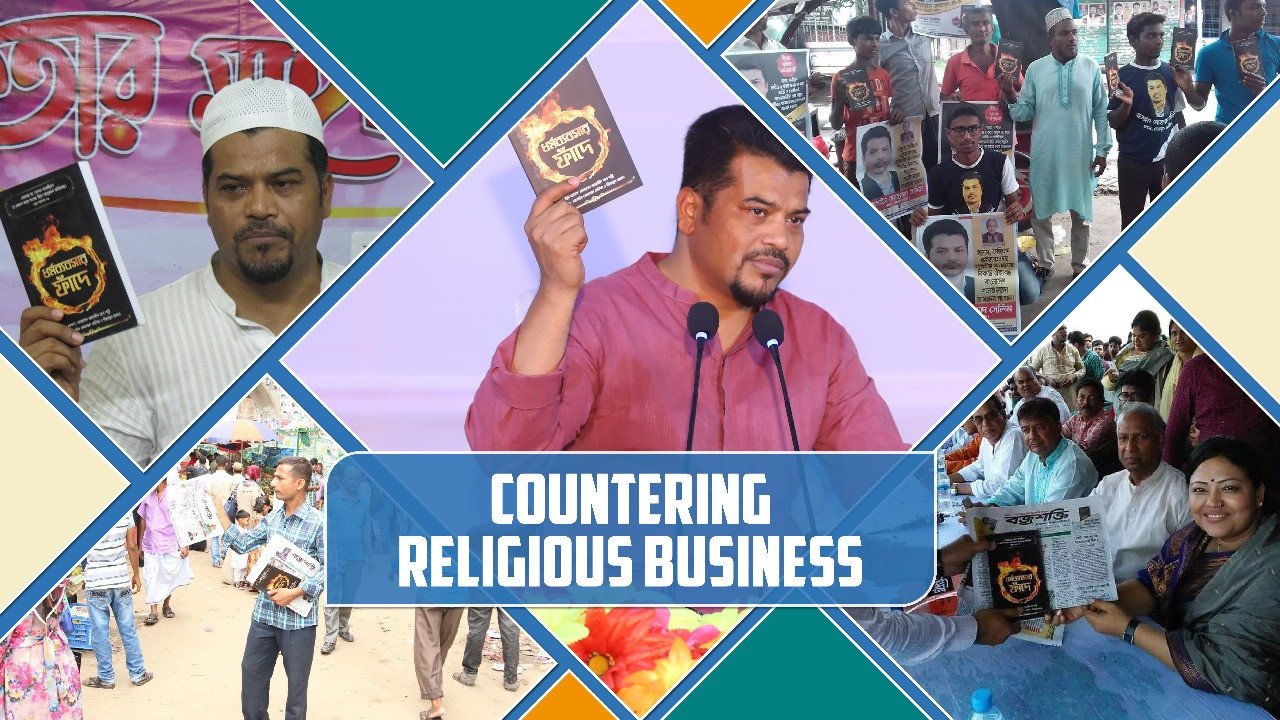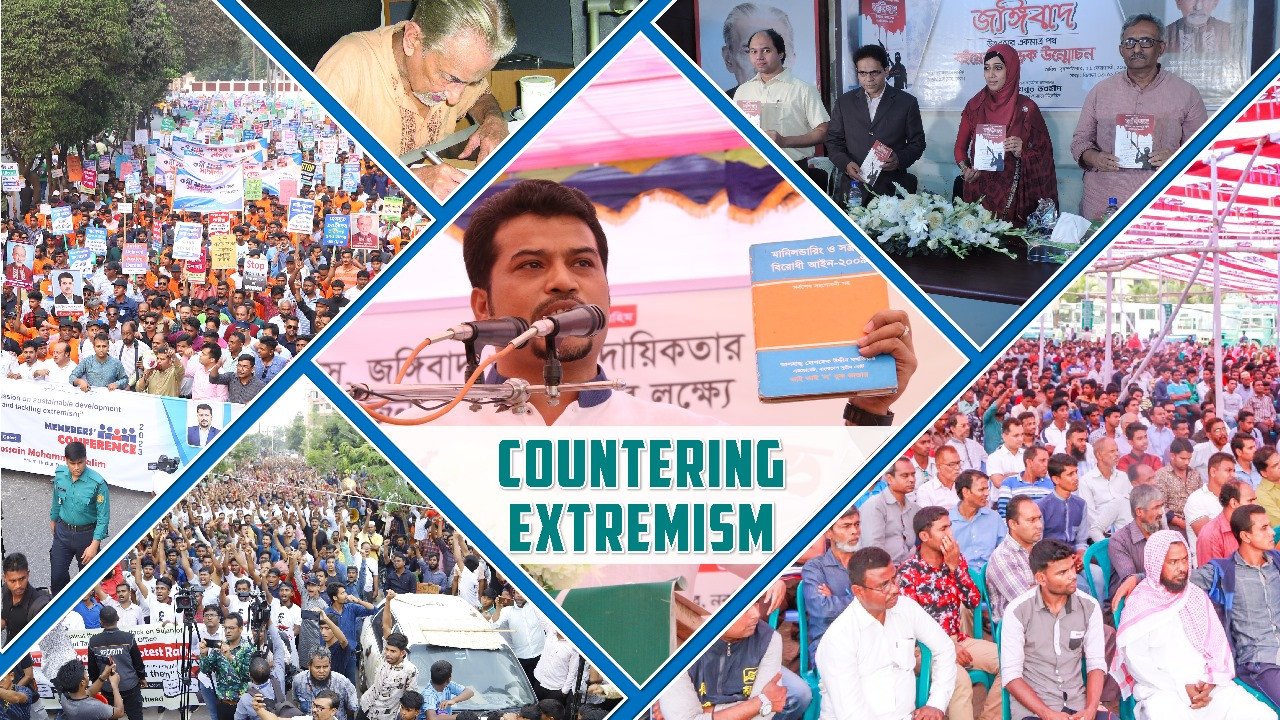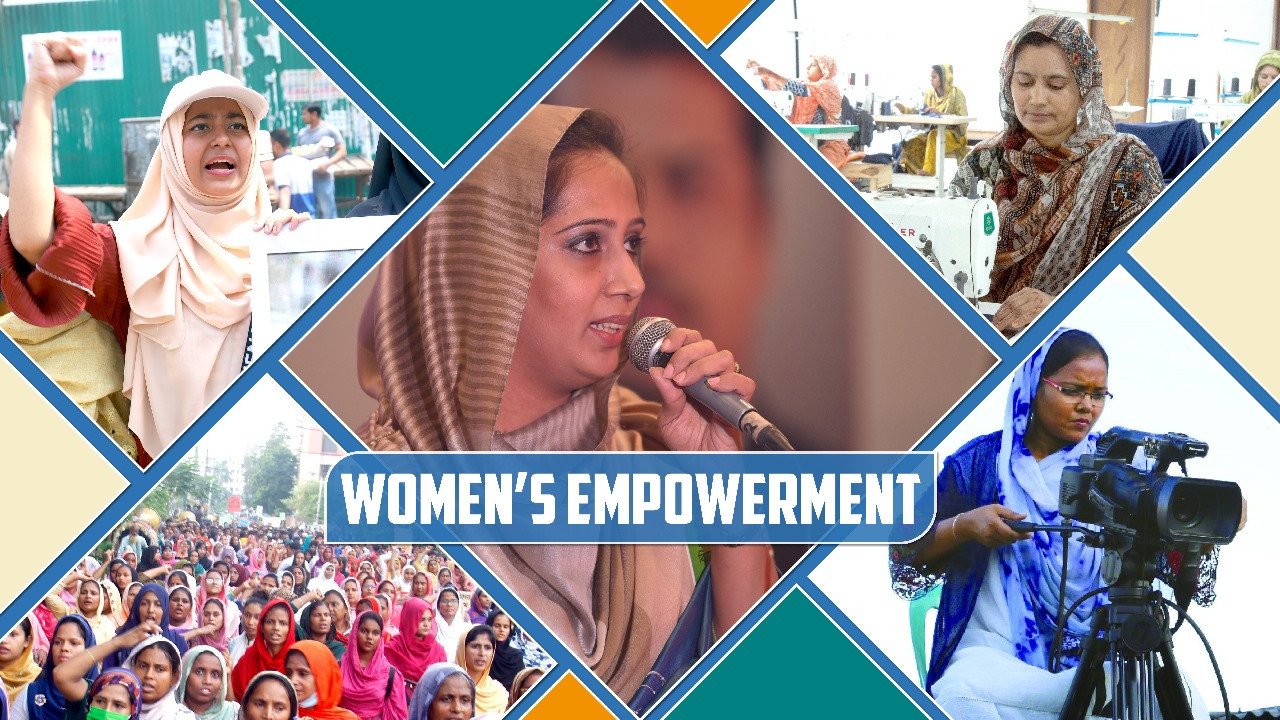
Half of humanity is female. Therefore, it is impossible to imagine the progress of any nation by excluding half of its population. A society where women are backward, immersed in superstitions, and lack proper education can never truly advance. Currently, religions have become conflicting with women's liberation. Even after creating Adam (pbuh), the beautiful environment and amenities of paradise seemed dull to him due to the absence of a companion. Then Allah created Eve (pbuh). Hence, neither man nor woman is self-sufficient; they are complementary to each other. In adverse environments, physical strength is needed to earn a livelihood through hard labor. Allah has endowed men with well-built muscles and a strong physique and has given them the responsibility of providing for the family. He has filled women with compassion and created their bodies suitable for bearing children. Therefore, naturally, a woman's general responsibility is to care for children and manage household affairs. However, Islam does not discourage women from acquiring qualifications and participating in any sector of collective life according to their abilities.
Recognition of Women’s Contributions
Women, like men, possess qualifications, experience, knowledge, intelligence, wisdom, and courage. No civilized nation has ever reached the peak of civilization by neglecting women. That is not a natural law. Hence, all the Messengers who have come to the world have provided ways to advance women alongside men. For this reason, religious texts, including the Quran, have narrated the stories of women's sacrifices, greatness, and struggles while describing the glorious past of human civilization. From the beginning of creation to the present day, it is impossible to mention the contributions of men without acknowledging the contributions of women. Most of the great works' recognition and awards are proudly received by men, yet behind their success, some woman has silently worked behind the scenes, and the blind society's gaze rarely turns towards that woman. There is no recognition for them; instead, in today's so-called civilized society, women are being oppressed and exploited at every step.
Women’s Status in Early Islam
In the age of Jahiliyyah, women in Arabia were not given the value of human beings. Many felt ashamed when a daughter was born, and some fathers even buried their daughters alive. The Messenger of Allah transformed that society into one where a beautiful young woman adorned with jewelry could travel hundreds of miles at night without any fear of harm to her wealth or honor. During the time of the Messenger of Allah (pbuh), men and women prayed together in the mosque and engaged in discussions. Women also gave advice on various matters, participated in battles, carried the wounded, and provided them with care and treatment. When necessary, they even took up arms and fought directly. Just a hundred years ago, the Western world claimed to have restored women's rights by granting them the right to vote and participate in the military. Yet history testifies that 1,400 years ago, soon after the age of Jahiliyyah, in the early days of Islam Aisha (ra.) led 10,000 soldiers in battle.
Historical Achievements of Muslim Women
The names of brave women like Safiya, Umm Ammara and Khawla (ra.) are written in golden letters in the books of Hadith and history. Khawla bint al-Azwar defeated the fierce Roman soldiers and rescued her brother Dirar. Umm Shifa (ra.) successfully managed the busy market of Medina. During wars, women contributed by supplying provisions, carrying the wounded from the battlefield to the camp, treating and caring for them, and burying the martyrs. A hospital was set up in the courtyard of Masjid al-Nabawi for treating the wounded, which was managed by a woman, Rufaidah Al-Aslamia (ra.). Women had the right to participate in social, national, and state affairs and in discussions. They participated in the five daily prayers, the Friday prayer, and the Eid prayers in the mosque. They even went to the mosque for Tahajjud prayers late at night. It can be said that there was no field where women did not participate. This was the form of freedom that Islam, as revealed by Allah, granted to women.
Restoring Women’s Dignity
On the other hand, contemporary religion-mongerers have confined women in the name of Islamic veiling practices. Meanwhile, Western civilization, under the banner of women's freedom, has pushed women towards obscenity and commodified them. Both of these extremes are excessive. Islam aims to mitigate these excesses and restore balance. Hezbut Tawheed seeks to restore women's true dignity, freedom, and rights. In practice, in Hezbut Tawheed, both male and female members participate together in all activities. They contribute to all tasks with their experience, knowledge, and capabilities. For the sake of their work, they undergo various types of training to enhance their qualifications and skills.
Women’s Participation in Hezbut Tawheed
In combating extremism, Hezbut Tawheed’s women play a leading role in organizing public meetings and seminars, delivering speeches, publishing and promoting newspapers, engaging in journalism, providing organizational leadership, participating in cultural activities, working in industrial production, engaging in agriculture and business, and providing healthcare services. They also participate in various physical activities and sports. Hezbut Tawheed organizes traditional sports competitions such as badminton and cycling for women. Additionally, they organize marathon races where both men and women participate. Hezbut Tawheed also has a women's kabaddi team that participates in national-level tournaments. Many are involved in self-defense sports such as Wushu and Karate.
Resistance Against Clerical Oppression
However, the misogynistic clerical class, unable to accept these roles of women, has been harassing and attacking them on the streets. In 2003, religious extremists attacked and martyred Rabeya Khatun in Kushtia. But the women of Hezbut Tawheed did not remain silent. Ignoring the threats and slander of the fanatical extremist groups, they continue to march forward with the torch of truth in hand.

